First Drive: Can the new Skoda Kodiaq eclipse the success of its predecessor?
The original Kodiaq was a smash hit for Skoda. Can this second-generation car deliver the same excellent experience? Jack Evans finds out.

What is it?
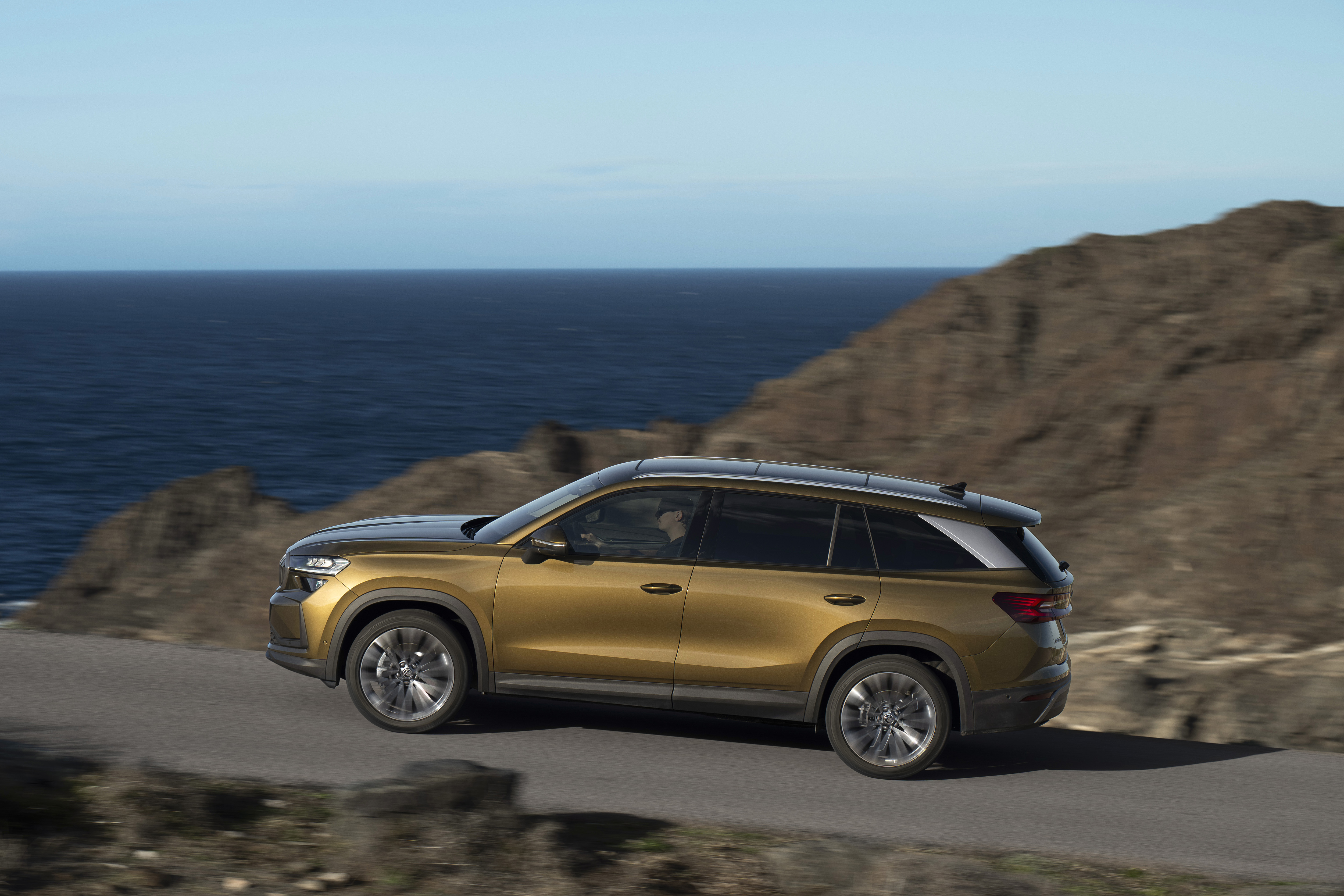
>
The Kodiaq brought Skoda into a whole new age when it was released back in 2016. Delivering the Czech firm into the then-flourishing – and now well-established – family SUV segment, it was a car that prioritised space and practicality while delivering a user-friendly focus. Needless to say, it was a hit and, in total, Skoda has delivered more than 865,000 Kodiaqs across the globe.
It means that replacing it is going to be tricky. However, Skoda believes it has made a match for the original with this second-generation Kodiaq, which brings more technology and features than before but without losing the spaciousness that made its predecessor so popular.
What’s new?
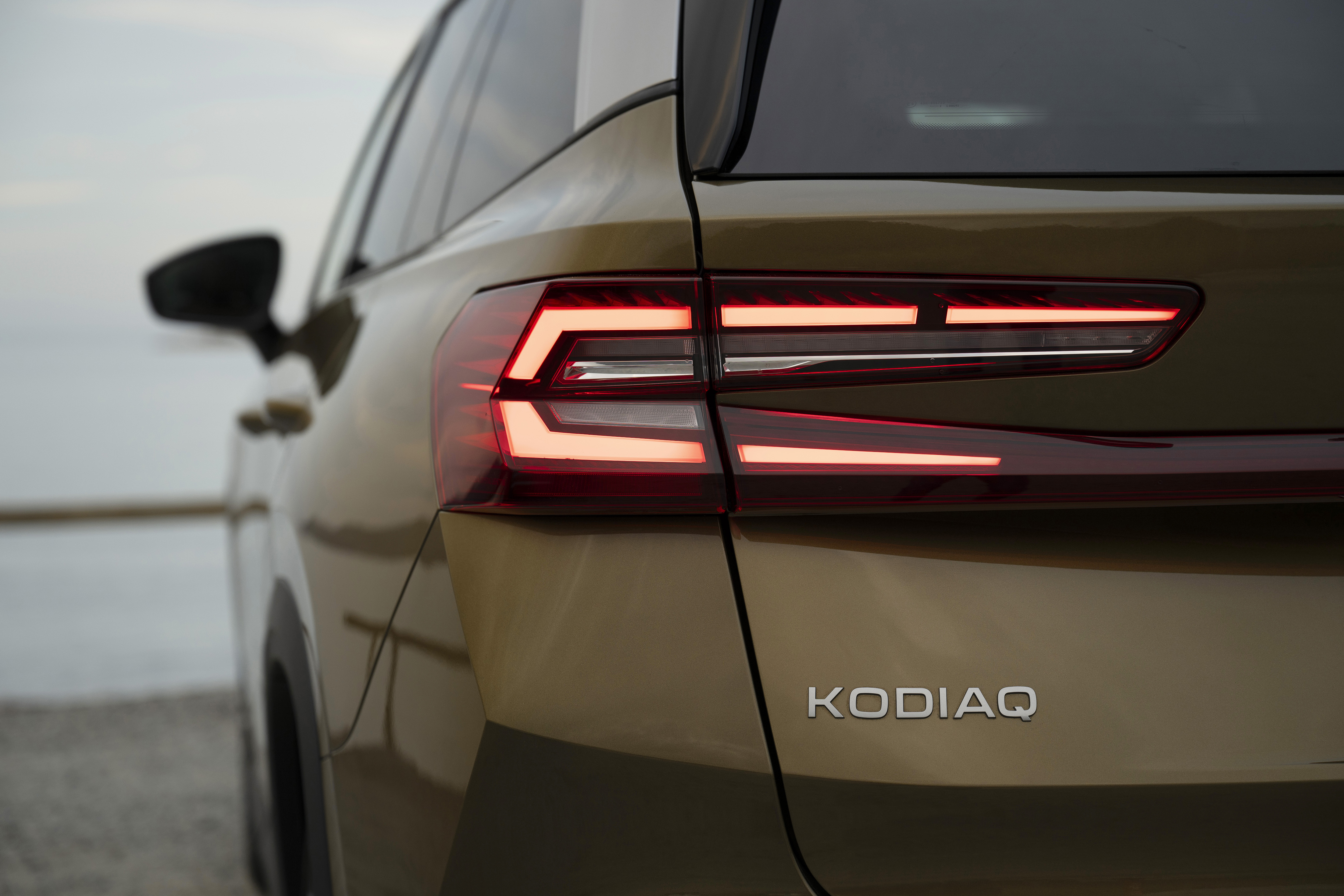
>
The Kodiaq was never a small car to begin with but, in the interests of boosting interior space, the new version is bigger than before. In fact, it’s 61mm longer than the car it replaces, bringing 15mm extra headroom to that third row – in seven-seater versions – which does mean that they’re a little more adult-friendly than those on the older Kodiaq. As before, this large SUV is offered in either five- or seven-seater layouts, though only entry-level SE versions are available as the former.
You’ll find the same range of ‘Simply Clever’ features aboard this new Kodiaq as you did on the older one, too – but with a more ‘eco’ twist. Both the umbrellas inside the front doors and the iconic ice scraper behind the fuel filler door are now made from green, recycled materials, for example.
What’s under the bonnet?
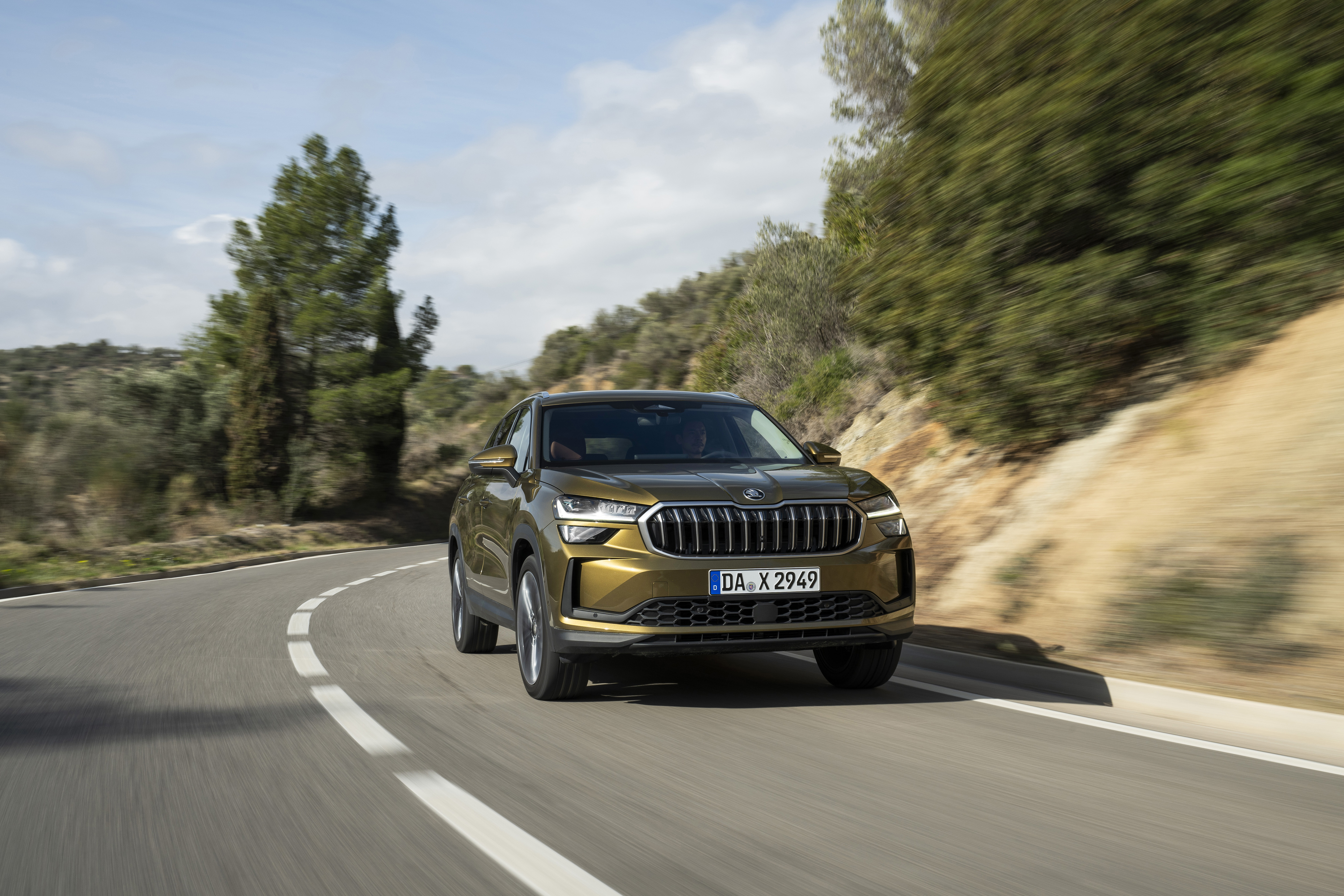
>
Skoda has offered the new Kodiaq with a wide range of engines, including an efficient plug-in hybrid which can return a claimed electric-only range of up to 60 miles, which will make it a good choice for business drivers. However, it’s not set to be in the UK until later this year – which is why we’re driving a more traditional 2.0-litre turbocharged diesel instead. We’re in the more powerful version, too, bringing 193bhp over a less potent 148bhp model with the same engine.
With a zero to 60mph time of 7.7 seconds, it’s got enough power on tap to ensure this large SUV is never left floundering performance-wise and with a claimed consumption figure of 44.1mpg, it’s reasonably efficient. We do, however, expect most drivers will opt for the 148bhp version – it’s still more than powerful enough but bumps that consumption figure to just under 50mpg.
What’s it like to drive?
The older Kodiaq always offered an easy-going and very intuitive driving experience and this new version delivers largely the same style. Naturally, you sit in a commanding position and there’s good adjustability available for whoever is behind the wheel. The steering itself is quite light – a handy attribute when you’re driving at lower speeds – while the ride is pleasant enough. We drove a car with optional Dynamic Chassis Control – which allows you to firm up or stiffen the dampers – and in their hardest setting the Kodiaq does become a little too rigid, though it does help to control the car’s body roll which is noticeable when the dampers are soft.
Visibility isn’t too bad, either, though over-the-shoulder glances are hampered by the car’s large rear quarter section, while the narrow screen at that back means that your view rearwards isn’t the best. The 2.0-litre diesel might be a little agricultural at slower speeds, but it makes up for this by being impressively quiet and smooth when you’re travelling more quickly.
How does it look?
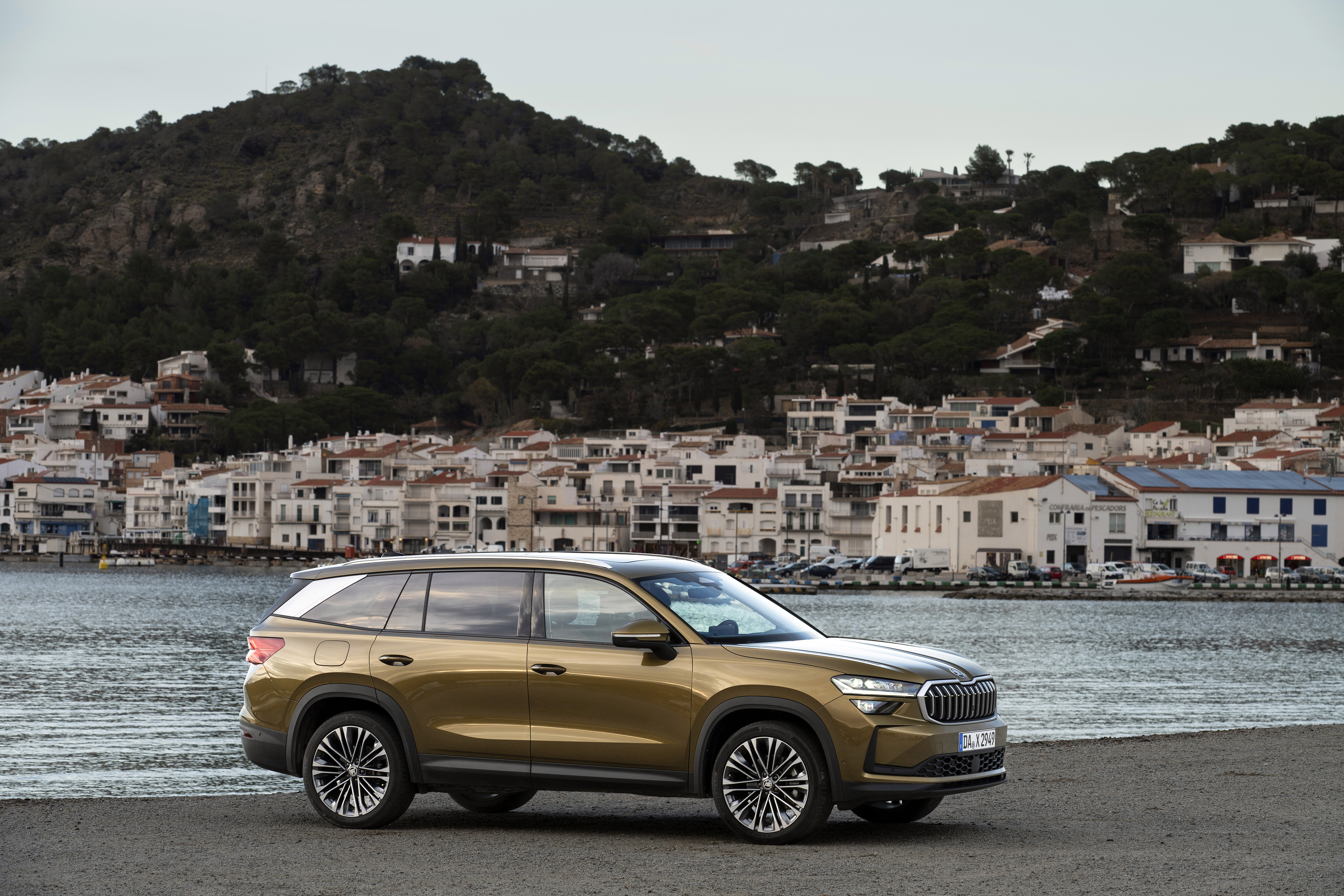
>
Skoda has taken an evolutionary approach with the design of the new Kodiaq. It’s a somewhat more rounded affair than it was previously, however, and while looks are always down to the individual, we feel that it doesn’t have quite the same visual impact as its more blocky predecessor.
There are still some nice touches here and there, mind you, like the squared-off wheelarches and the more intricate headlights. As is the fashion at the moment, there’s also an LED strip connecting the headlights while around the back you’ll find a full-width light bar as well.
What’s it like inside?
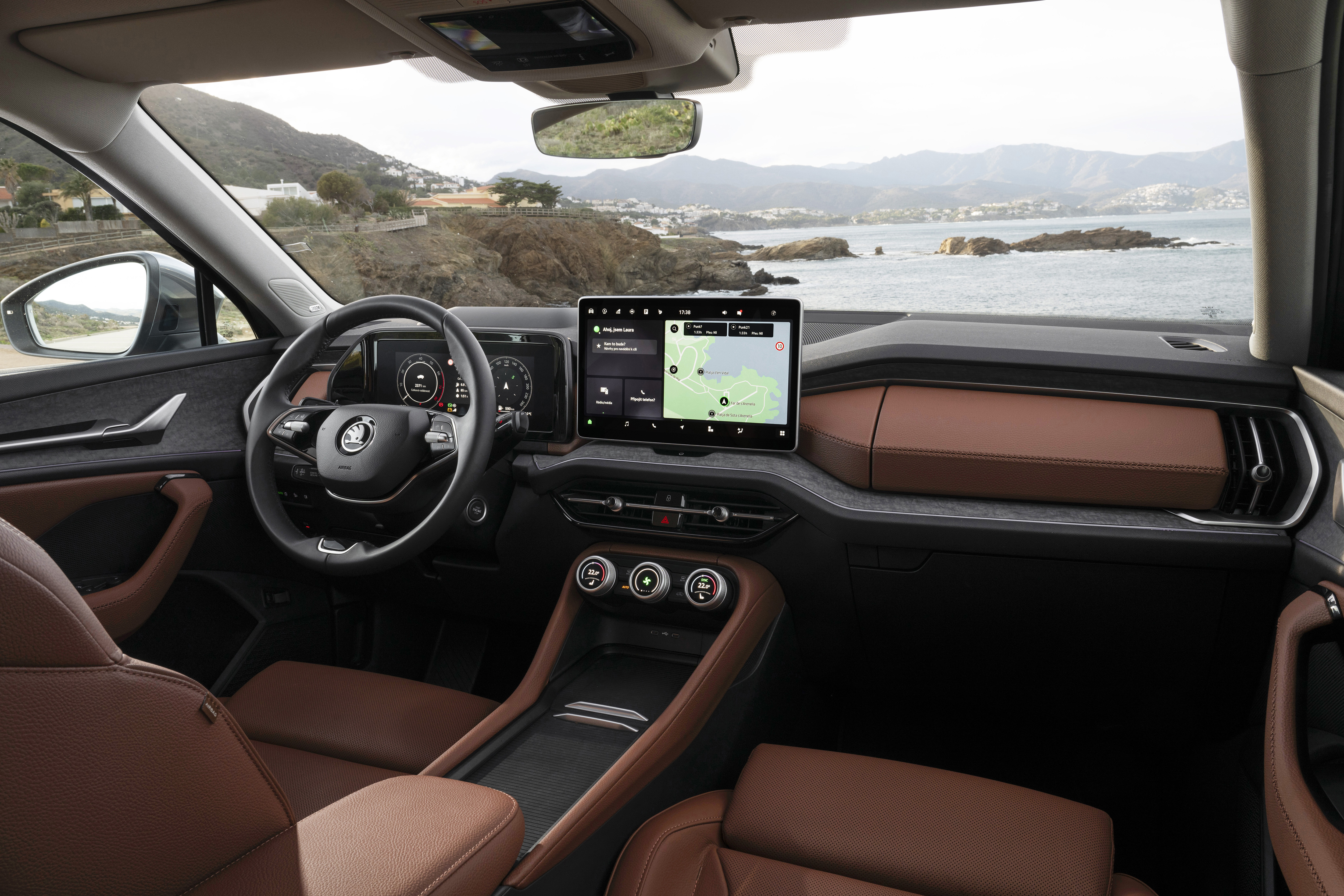
>
Space has always been a priority with the Kodiaq and that’s no different here. Those sitting up front have a great view of the road ahead, while the middle-row occupants have plenty of space to enjoy. Both head- and legroom levels are excellent while the sheer variety of pockets and charging ports makes this SUV extremely versatile and appropriate for family buyers. Material quality is good, too, and the overall fit-and-finish is top-notch.
The very rearmost seats – on seven-seater Kodiaq models – aren’t too bad but despite the increased headroom, it’s still very tight for average-height adults. Taller people will struggle to sit there at all. However, for occasional use, it’ll be fine, while smaller kids will be able to sit there quite happily for longer trips. Boot space is great too, with the seats-up load area growing by 80 litres to 340 litres, or 845 litres with the rearmost seats folded flat. Collapse both rows and you free up an impressive 2,035 litres.
What’s the spec like?
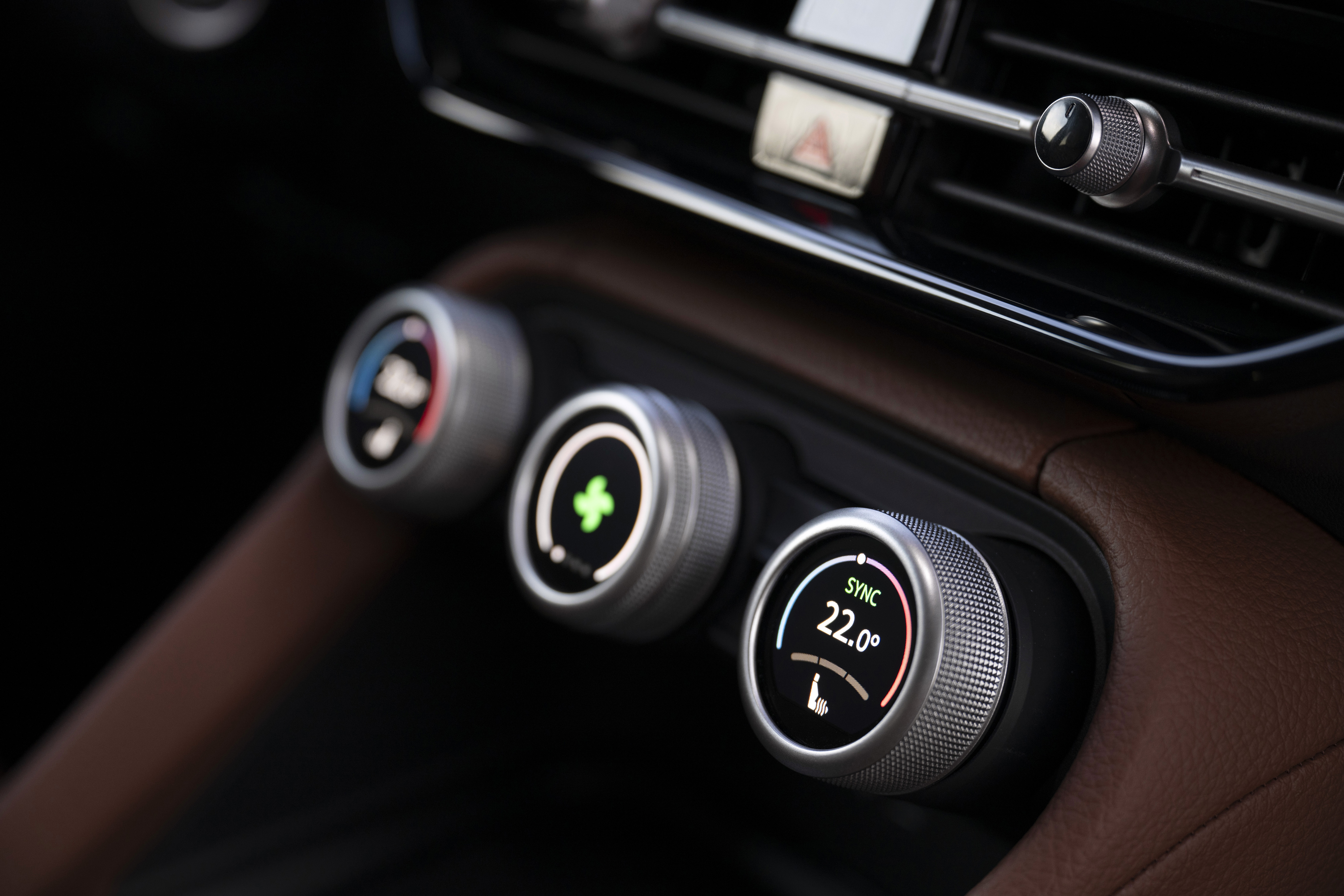
>
There has been a bump in the Kodiaq’s price – it now starts at £36,645, whereas the original 2016 version would’ve kicked off from just over £21,000. However, there’s far more technology on board and given it’s nearly a decade since the first-generation car arrived, there are some inflationary measures to take into account. It’s a car which is jam-packed with features, however, from a large central touchscreen and virtual cockpit, to the two wireless phone charging slots which are fan-cooled to ensure that they can deliver a high rate of charge without overheating your devices.
We’re in a well-equipped SE L version, which will likely be a firm favourite among buyers. It brings 19-inch alloys as standard, alongside Matrix LED headlights, a powered boot and a driver’s seat with an electric memory function. One crucial feature – standard on all cars – is the new ‘Smart Dials’ which are customisable rotary switches that are a breath of fresh air against the touchscreen-centric approach we’ve seen lately. Operating features such as the fan speed or temperature, they’re a breeze to use – particularly on the move – and way better to having everything within the main screen.
Verdict
Skoda hasn’t re-written the Kodiaq rulebook with this second-generation car. It’s a recipe which has been finessed and refined, elevating it in all the key areas without diminishing the factors which made the original so successful. It’s pleasing that Skoda hasn’t lost sight of the user-friendly features which the first Kodiaq delivered; the smart dials and logical location of buttons make this a car that’ll be dead easy to get up to speed with.
It has risen in price, but there’s so much equipment on board the Kodiaq that it doesn’t feel unreasonable. Add in a whole heap of extra space – and a good range of engines – and it makes this latest Kodiaq just as easy to recommend as before.





